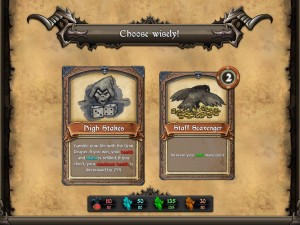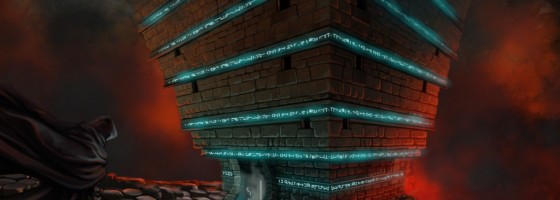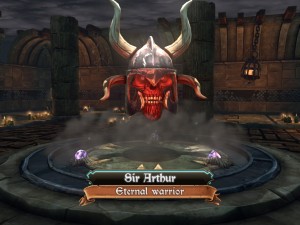Ziggurat is one of several games I’ve picked up during the Steam Summer Sale after its release last year. Combining elements from rogue-likes, RPGs and FPSs, it’s a good game that could have used a little more to be great.
Test Time:
In Ziggurat, you play an apprentice wizard whose final training assignment is to ascend the Ziggurat: A massive structure where demons are housed. Each floor of the Ziggurat follows a similar structure as the Binding of Isaac: That the floor is procedurally generated using predefined rooms.
On each floor, you need to find the boss room and a portal key that will let you access the fight. Standing in your way is a variety of minions that make up the rooms. Once you enter a room, you can’t leave until all the minions are dead. Throughout each floor, you’ll also find new weapons, artifacts, lore and special challenges.
Gameplay is entirely FPS based and is almost like Serious Sam in the arcade style. You start the game with a wand as your default attack, and you can find weapons belonging to three other classes — Spells, Staves and Alchemy throughout the game. You can only equip one weapon of each class at a time for a grand total of four weapons in your arsenal. These weapons require ammo which is usually dropped from defeated enemies.
There is a light RPG progression and Meta-Game component to Ziggurat as well. Killing enemies will drop treasure, which is the game’s form of experience. At each level up, you can choose from one of two perks which the pair is randomly chosen from the available unlocked perks. Win or lose, when a game is done, you’ll be rewarded with new possible unlocks for subsequent plays which include: new weapons, artifacts and perks.
Tying it all together is a cartoon-like aesthetic that makes the environments and enemy designs pop. What Ziggurat does well is that it has that chocolate and peanut butter like flavor of combining two different genres; in this case rogue-like with FPS.
And while the design does work, this is a case where the gameplay doesn’t go far enough to deliver on what makes either component stand out.
Retaking the Test:
Ziggurat’s main problem stems from the lack of real growth of its two different genre inspirations. On the rogue-like side, there just isn’t enough variety in the room designs or enemies to make each run standout. By my third time through, I noticed plenty of room repeats on each floor along with the same gambit of boss fights.
Enemy design is lacking, with minor enemies all about long range attacks or just charging you, and boss fights who are bullet sponges while you fight it and its respawning enemies. The game does feature elite enemies designated by a different color hue, but their impact is not noticeable.
On the FPS side, the gameplay becomes very repetitive due to a lack of varied weapons and upgrades. Your basic wand doesn’t appear to get any upgrades (at least during the time I’ve played,) unlike the Binding of Isaac and how your basic attack changed dramatically. The various weapon classes lack the gunplay feel of other FPS titles and there is a problem with how weapons are introduced.

The RPG progression and upgrade systems are very basic and prevents them from hooking the player in the same way that Binding of Isaac did
Since you can only carry one weapon of each class and their spawns are limited, you can run into a situation where you’re not getting any weapon upgrades and stuck with just two weapons for a long time.
This is the nature of the rogue-like randomization, but it happened frequently enough for it to become a problem.
The Meta-Game is also lacking compared to Isaac, as there didn’t seem to be any real growth that happened after repeated plays. You do unlock new characters and the as mentioned items, but it’s nowhere near as in-depth as the Binding of Isaac; where the game transformed dramatically in terms of content and situations the longer you played.
A Long Climb:
For its price, Ziggurat is not a bad game by any means, but it is a case where it’s just missing that little extra something to turn it into an amazing game. When it comes to meta-game design in the form of rewards, The Binding of Isaac is still the king of the hill and one game that developers should be paying attention to if they want to go the same route. Finally, if you want more about Ziggurat, here is a video spotlight that I did on the game.


